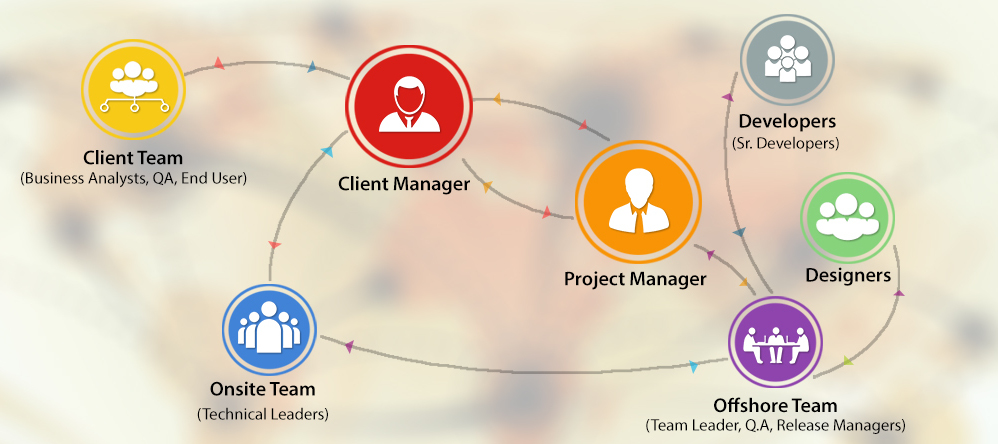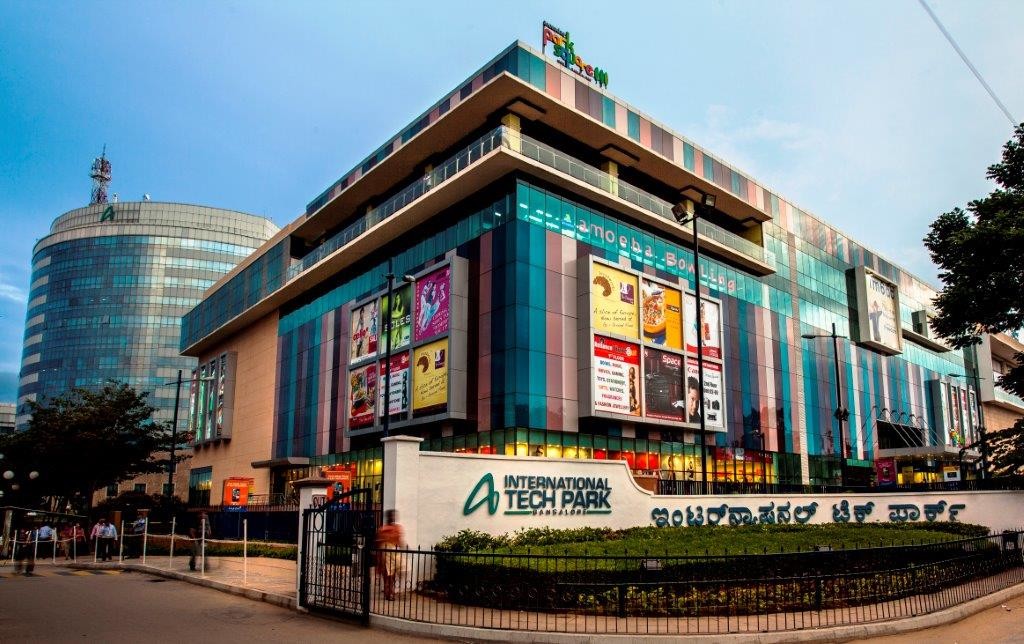
Reliable Offshore Development Center
An Offshore Development Center (ODC) is a business model in which a company establishes a dedicated facility or team in a different country, often located offshore, to handle specific aspects of its software development, IT services, or other projects. This approach is commonly used by companies to take advantage of cost savings, access specialized skills, and extend their development capabilities.
Data Science & Analytics Focused ODC
Locus IT’s Offshore Development Services model helps you ramp up your Data Science & Analytics team as per your needs and requirements, making you more agile and set for accelerated growth.
Offshore development in India for data science has become increasingly popular over the years due to the country’s well-established IT industry, large pool of skilled professionals, and cost-effective services.

Why Data Science ODC in Bangalore?
Often referred to as the “Silicon Valley of India,” is home to numerous prestigious educational institutions and research centers. This has led to a vast pool of skilled software engineers, developers, and other IT professionals, making it easier to find and hire qualified talent.
11 Benefits of working with Locus IT for an Offshore Development Center (ODC)
Reducing the salary is a common concern for companies to go for offshore development centers services. By paying high is difficult to maintain an in-house team with expertise in the latest technologies. Many companies are experiencing the benefits of the offshore development team. By offshoring your business, you don’t have to spend time on recruiting, hiring & training employees.
The recent market study says; India has become synonymous with tech innovation in the past few years. The progress is attributed to the country’s growing startup ecosystem and the government’s robust push toward digitization through initiatives such as Digital India. To make the most of this tech potential, both multinationals and Indian firms are already ramping up their recruitment plans, aiming to hire about 200,000 employees from India every year to lead their teams.
At Locus IT; we focus on building new technology specialists by exposing them to rigours skill development programs and make them ready to deliver any business needs.
Companies need to appoint a dedicated team for developing a product as it requires a lot of time. Therefore, the topmost offshore development centers can provide a dedicated team when qualified people are working on around-the-clock. Hence, it saves time and money. This will help the company to manage and solve real-time in-house problems, rather than filling the gaps in the team. An external team can offer innovations & creativity at each stage of the business cycle.
At Locus, we focus on developers who can not just code but also on documentation, bit of testing skills and also training the customers on the solution developed. When you engage a developer from us, you can expect some kind of multi tasking too.
Dedicated client servicing manager will be an added advantage and makes the entire offshore development work easy. Be it your product branding at work location or talent recruitment process; the single point of contact helps make quicker progress.
When working with offshore development teams, effective time management and meeting deadlines are crucial for the success of any business.Globalisation and remote work are pushing companies to outsource software development to offshore development teams around the world.
We at Locus, prepare the team to be available at work on mutually agreed time and most of the time it is decided as per the customer convenience.
Hiring offshore teams allows a business to focus on its core expertise by outsourcing non-core functions to specialized teams.
The company can then use that time, money, and personnel for activities that directly contribute to its bottom line.
Businesses can focus on areas where they have a competitive advantage by outsourcing customer support and software development.
By leveraging offshore development teams, a business can optimize its operations and enhance efficiency and profitability.
The offshore development industry is at the forefront of leveraging the latest technologies.
With the help of advanced communication tools and cutting-edge technologies, offshore teams work seamlessly from anywhere in the world.
Furthermore, they can share ideas, and resources in real-time. This helps to improve the organisation’s productivity.
To reduce costs and enhance competitiveness, offshore teams adopt new technologies such as blockchain and machine learning.
Although this term refers mostly to scaling in hardware infrastructure, it is also an important factor introduced by offshore development.
Your business may not require the same resources all the time. There might be a phase of your products and services that requires a greater number of expert resources to work on, and then you could achieve a level of maturity that makes it unnecessary to continue with the same level of higher qualified professionals.
At this point, you may decide to shrink the team or switch roles and positions to a more operative level. This degree of management of IT resources could be tremendously complex when dealing in house. We at Locus make it easy for you.
A cross-technology capability refers to the ability of an IT engineer to work effectively across multiple technologies, platforms, and tools. This skill is highly valuable in today’s rapidly evolving IT landscape, where new technologies emerge frequently and existing ones evolve rapidly. Here are some key capabilities of Locus IT’s talent pool:
- Adaptability: IT engineers with cross-technology capabilities are adaptable and can quickly learn new technologies as they emerge. They have a mindset that allows them to embrace change and approach new challenges with enthusiasm.
- Problem-Solving: Cross-technology IT engineers have a strong foundation in problem-solving. They can apply their knowledge and skills across various domains to troubleshoot issues, whether they are related to hardware, software, networking, or security.
- Core Concepts Mastery: While being proficient in various technologies, cross-technology IT engineers often focus on mastering core concepts that underlie different technologies. This allows them to transfer their knowledge more effectively from one technology to another.
- Coding and Scripting: Proficiency in multiple programming languages and scripting tools is essential for a cross-technology IT engineer. They can write code, automate tasks, and develop solutions that span different technology stacks.
Data and code security are critical considerations for any organization, especially when working with an offshore development center (ODC) where sensitive information and intellectual property might be shared across geographical boundaries. Here are some important measures and best practices to ensure data and code security at Locus IT.
- Non-Disclosure Agreements (NDAs): Before engaging with an offshore development center, establish a solid legal foundation by signing NDAs with the service provider. This legally binds them to keep your sensitive information confidential.
- Secure Communication: Use encrypted communication channels for sharing sensitive information. Secure email services and encrypted messaging platforms can help protect data during transmission.
- Access Control: Implement strict access controls based on the principle of least privilege. Only authorized personnel should have access to the codebase and sensitive data.
- Secure Development Practices: Enforce secure coding practices to prevent vulnerabilities. This includes regular code reviews, static and dynamic code analysis, and adherence to security standards like OWASP Top Ten.
- Code Versioning and Repository Security: Use secure version control systems and repositories that require authentication and access controls. Popular platforms like Git offer security features to protect your codebase.
- Data Encryption: If sensitive data needs to be stored, ensure it is encrypted both at rest and in transit. Encryption helps prevent unauthorized access to the data even if it’s compromised.
- Secure Infrastructure: The ODC’s infrastructure should be robust and regularly updated with security patches. This includes the operating systems, databases, and any other software in use.
- Secure Development Environment: Ensure that the development environment is protected from malware and unauthorized access. Developers should follow security protocols while working within this environment.
- Regular Security Audits: Conduct regular security audits and assessments of the ODC’s infrastructure, processes, and codebase. This helps identify vulnerabilities and weaknesses that need to be addressed.
- Physical Security: If possible, visit the offshore development center to evaluate their physical security measures, such as access controls, surveillance, and visitor policies.
- Employee Training: Provide training to both your internal team and the offshore development center’s staff about security best practices, phishing awareness, and proper handling of sensitive data.
- Incident Response Plan: Develop a well-defined incident response plan that outlines steps to be taken in case of a security breach. This should include communication protocols, containment strategies, and recovery plans.
- Data Retention Policies: Establish clear data retention policies that define how long certain types of data will be stored and when it should be securely deleted.
- Continuous Monitoring: Implement continuous monitoring of the ODC’s security posture. This can include intrusion detection systems, log analysis, and threat intelligence feeds.
Remember that data and code security are ongoing efforts. Regularly reassess your security measures and stay up-to-date with the latest security threats and best practices to ensure the protection of your valuable assets.
The team is trained on culture differences to make the business deliverables easy and business friendly.
We train the engineers on how to work collaboratively in synchronous and asynchronous models keeping in mind the 5Cs
- Communication –
- Collaboration –
- Connection-
- Creativity-
- Culture.


